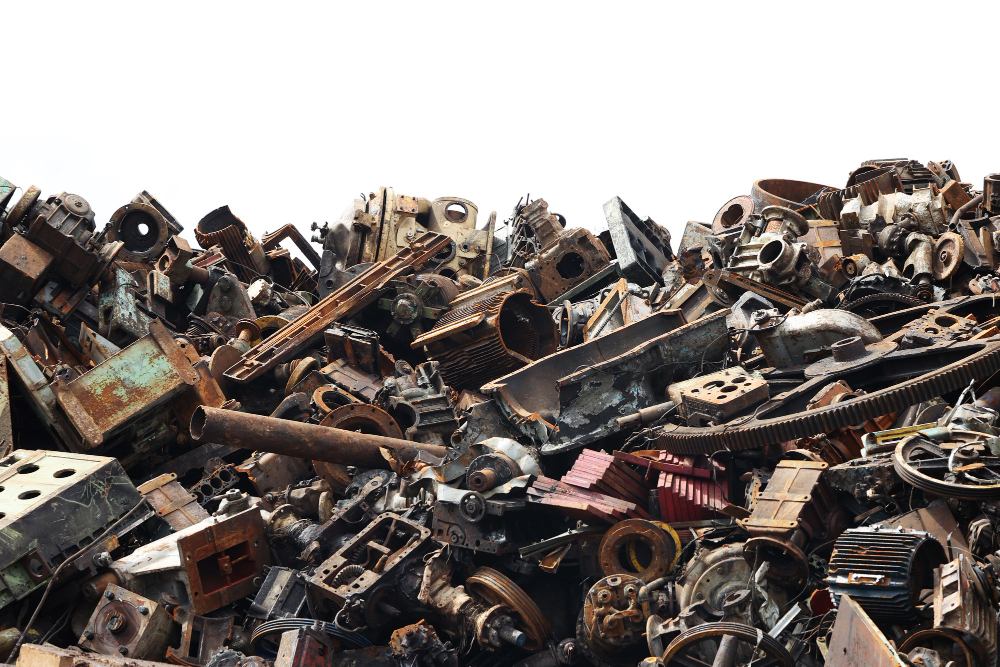

DEC 13, 2023
As we look toward the future, scrap metal recycling has become more than a trend - an indispensable necessity. Environmental sustainability has become an international goal; hence, its role in conserving resources and reducing waste cannot be understated. This piece by RCM Recycling explores this dynamic field as we uncover key trends and innovations shaping its trajectory into its next chapter.
At its core, scrap metal recycling involves collecting, processing, and repurposing metal waste to help conserve natural resources by diverting it away from landfills and decreasing new metal production needs. The process is relatively straightforward yet significant: scrap is collected, sorted, and then processed before being melted down to produce new products - thus contributing towards sustainability practices in one step!
As demand for recycled metal increases, scrap metal companies have expanded their role considerably. No longer simply recycling centers, they are now leading this field with innovative processes that ensure higher-quality recycled products with greater usability than before. They represent part of an innovative movement to transform waste into useful resources.
Scrap metal buyers play an essential part in this recycling chain. Acting as liaisons between sources of scrap and recycling facilities, their job involves collecting it and verifying whether or not it meets quality standards for recycling - they possess keen eyes for different metal types that hold potential worth, making them invaluable partners during this process.
Technology has revolutionized scrap metal recycling. New sorting technologies, like sensor-based identification and automated processing systems, have completely altered how scrap is managed, providing more precise sorting with higher-quality recycled metals. Thanks to these advancements in recycling technology, recycling has become more efficient and economically sustainable, too!
Consumer and industrial preferences for recycled metals have increased exponentially due to environmental concerns and economic benefits. Recycling often costs less than virgin metals while providing eco-friendly options - driving this surge is a significant growth driver of the recycling industry.
Sustainability goes beyond recycling itself - it refers to how this task is completed. Scrap metal companies are paying greater attention to how their operations run, using renewable energy sources, cutting water usage, and decreasing carbon emissions for improved environmental practices that resonate with their target markets. Not only are such practices good for our planet, but consumers increasingly look out for companies committed to sustainability as an indicator of quality service delivery.
The success of scrap metal recycling depends heavily on public participation. Informing residents about its benefits and how to take part are essential to recycling; companies and buyers often organize public awareness programs in their community outreach initiatives designed to raise public consciousness of this cause, increasing volumes collected while cultivating an environmental culture of responsibility.
The regulatory environment surrounding scrap metal recycling is constantly shifting. New policies and regulations are frequently issued to promote environmentally and socially friendly recycling methods. Hence, adhering to them as required for legal compliance and commitment towards more eco-friendly operations is vital for companies within this industry.
Scrap metal recycling markets have reached far beyond local boundaries in recent years due to the rising global trade of recycled metals driven by countries' different needs and capacities. As this globalization unfolds, scrap metal companies face new opportunities as they successfully navigate international markets and regulations.
Scrap metal recycling promises to become more prominent over time due to technological developments, increased emphasis on sustainable practices, and an ever-increasing global demand.
As mentioned previously, scrap metal recycling is currently going through dramatic change. Driven by technology, sustainability, and global market dynamics, it has evolved to meet modern environmental conservation issues and adapt to consumer, business, and government consciousness. Scrap metal companies and individual buyers play key roles; these can redefine our understanding of resource conservation and environmental stewardship - not simply recycling materials! The future of recycling lies not simply with reuse - rather redefining it altogether for environmental conservation efforts and resource stewardship purposes.